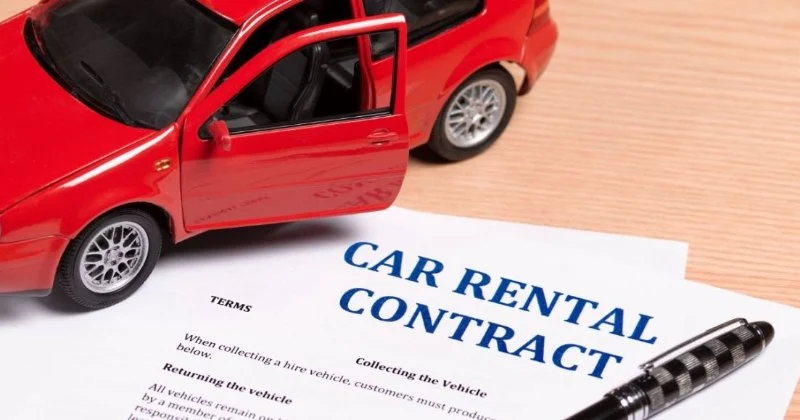
- 1. What is Supplemental Liability Insurance?
- 2. Why is Supplemental Liability Insurance Important?
- 3. How Does Supplemental Liability Insurance Work?
- 4. What Does Supplemental Liability Insurance Cover?
- 5. Alternatives to Supplemental Liability Insurance
- 6. How to Choose the Right Car Rental Insurance
1. What is Supplemental Liability Insurance?
Supplemental Liability Insurance (SLI) for car rentals is an optional coverage offered by car rental companies to protect you in the event of an accident. While basic rental insurance often includes damage to the car itself (Collision Damage Waiver or CDW), it doesn’t typically cover injuries or property damage caused to others. This is where Supplemental Liability Insurance comes into play.
SLI provides additional protection above the rental car company’s basic liability coverage, which may not offer sufficient coverage in case of a serious accident. By purchasing this extra insurance, you’re covered for bodily injury and property damage to third parties, making it a valuable option for many drivers who want extra peace of mind while renting a car.
2. Why is Supplemental Liability Insurance Important?
While car rental companies provide basic insurance coverage, it may not be enough to fully protect you in the event of a serious accident. In many cases, the basic liability coverage is limited and might not cover the full extent of damages or injuries caused to other people or their property.
Without Supplemental Liability Insurance, you could be held financially responsible for costs exceeding the rental company’s liability coverage. This could include medical bills, legal fees, and repair costs for other vehicles or property damaged in the accident. Supplemental Liability Insurance helps fill this gap by covering these potential expenses, allowing you to drive with greater peace of mind.
3. How Does Supplemental Liability Insurance Work?
Supplemental Liability Insurance works by providing coverage for accidents where you are responsible for causing injury to others or damaging their property. When you rent a car, the rental company typically includes basic liability insurance as part of the rental agreement. However, this coverage is often limited to only a small amount of money, and in the event of an accident, the cost of damages can quickly exceed that amount.
By adding Supplemental Liability Insurance to your rental, you extend your liability coverage. SLI provides protection in the event that your accident causes significant damage or injuries to another person. The insurance helps pay for medical bills, property damage, and even legal costs if you are sued. This additional coverage can be particularly important if you plan to drive in unfamiliar areas or have concerns about your financial protection in the case of an accident.
4. What Does Supplemental Liability Insurance Cover?
Supplemental Liability Insurance provides coverage for various incidents that could occur during your car rental period. Here’s what it generally covers:
- Bodily Injury: If you are responsible for injuring another person in an accident, SLI will help cover their medical expenses, including hospital stays, surgeries, and rehabilitation.
- Property Damage: In the case of an accident where you damage someone’s vehicle or other property (such as a fence or building), SLI can help pay for the repairs or replacement costs.
- Legal Costs: If you are sued as a result of an accident, Supplemental Liability Insurance can cover your legal fees and potential settlements.
- Third-Party Injuries and Damage: SLI generally covers any injuries or damages to third parties caused by your actions, making it an important safeguard if the damages from the accident are substantial.
It’s important to note that SLI does not cover damages to the rental car itself (that’s typically covered under Collision Damage Waiver or CDW) or injuries you suffer in the accident. SLI only provides liability protection for third parties.
5. Alternatives to Supplemental Liability Insurance
While Supplemental Liability Insurance offers a robust layer of protection, there are other options you can explore to ensure you’re fully covered during your car rental experience:
- Personal Auto Insurance: If you already have personal auto insurance, it might cover rental car liability in case of an accident. Be sure to check with your insurance provider to understand the extent of your coverage and whether it includes rentals.
- Credit Card Coverage: Some credit cards offer rental car insurance when you use the card to pay for the rental. This may include coverage for liability, but it varies by card and provider, so check the specific benefits of your credit card.
- Third-Party Insurance Providers: Some third-party insurance companies offer rental car insurance policies that may include liability coverage. These policies can often be purchased separately from the rental car company and may offer more competitive rates.
It’s always a good idea to compare the different options available to you, as well as the terms and coverage limits, before deciding whether to purchase Supplemental Liability Insurance directly from the rental car company.
6. How to Choose the Right Car Rental Insurance
When renting a car, choosing the right insurance coverage is crucial to ensure you’re adequately protected in the event of an accident. Here are a few tips for selecting the best car rental insurance for your needs:
- Assess Your Existing Coverage: Before opting for supplemental coverage, check your personal auto insurance and any credit card benefits to see if they already cover rental cars. This can help you avoid paying for unnecessary insurance.
- Consider the Type of Rental: The type of vehicle you’re renting (luxury, sports, or economy car) and the location you’re driving in may affect your insurance needs. For example, driving in unfamiliar areas or on busy highways may increase the likelihood of an accident.
- Understand the Terms: Carefully read the terms and conditions of any insurance policy to ensure you understand the coverage limits, deductibles, and exclusions. Knowing what’s covered and what isn’t will help you avoid surprises in case of an accident.
At Carvel Car Rental, we offer a variety of insurance options to meet your needs. Whether you’re looking for basic coverage or enhanced protection, our team can help you select the best insurance package for your rental experience.







 Budget Car Rental3.0 (43 reviews)
Budget Car Rental3.0 (43 reviews) Hertz Car Rental - Baltimore - Reisterstown Road2.0 (107 reviews)
Hertz Car Rental - Baltimore - Reisterstown Road2.0 (107 reviews) National Car Rental4.0 (2798 reviews)
National Car Rental4.0 (2798 reviews) Enterprise Rent-A-Car4.0 (405 reviews)
Enterprise Rent-A-Car4.0 (405 reviews) Enterprise Rent-A-Car4.0 (530 reviews)
Enterprise Rent-A-Car4.0 (530 reviews) South Atlanta Rental Cars5.0 (1 reviews)
South Atlanta Rental Cars5.0 (1 reviews) How to Rent a Luxury Car for Your Next Special Occasion
How to Rent a Luxury Car for Your Next Special Occasion Renting a Car for the Long Weekend: Tips for Smooth Travel
Renting a Car for the Long Weekend: Tips for Smooth Travel What Time Does Budget Car Rental Open in the U.S.?
What Time Does Budget Car Rental Open in the U.S.? How Much Is Enterprise Car Rental? Real Costs & Tips Explained
How Much Is Enterprise Car Rental? Real Costs & Tips Explained How Much is Hertz Car Rental Deposit?
How Much is Hertz Car Rental Deposit? Do You Need Car Rental Insurance? Understanding Coverage Options and Alternatives
Do You Need Car Rental Insurance? Understanding Coverage Options and Alternatives